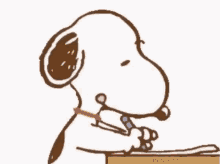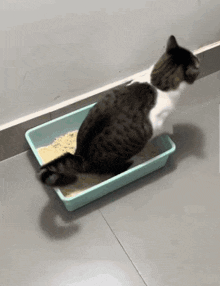Sometimes, it feels like you have to write an essay every single day for school. And maybe that is the case for you. But that doesn't have to deter you from being an amazing writer, no matter how hard the workload is. If you're feeling like you can't keep up with all of your written assignments, here's a guide for you on how to shine in every single one.
Let us slide into your dms 🥰
Get notified of top trending articles like this one every week! (we won't spam you)Read Everything

Image Credit: Cottonbro studio from Pexels
I'm sure you're tired of hearing teachers say this, but I promise there's truth in it. We as humans learn by watching those around us. However, start reading through the lens of a writer rather than a reader.
When I read books that I really love and am invested in, I tend to turn off the critical part of my brain and just enjoy the story. This is why I recommend reading other things as well. You could read books in a genre you're not too familiar with, or you could read articles like you're doing now. Whatever it is, make sure to pay attention to the techniques the writers use and how that makes you like or dislike the product as a whole.
Take the Quiz: Rank Your Extracurricular Activities for College Applications
Take this quiz to find out how your extracurricular activities rank!
Write for Fun
Now that you've had experienced a variety of works, it's time to make your own. Consider your writing skills a muscle that you need to constantly train. Writing pieces similar to what you'll get assigned in school is the best thing to do, but any type of writing will help immensely, as long as you practice at least once a week and use different writing methods. Try different types of writing as well, such as expository, persuasive, etc., and play around with tone as well, and how that affects your project.
You could also look up prompts to practice online. I like to make a Pinterest board of prompts that I can look at whenever I'm going to write something, but you can also make a list on a doc or a piece of paper.

Image Credit: SHVETS production from Pexels
Make an Outline and Expand it
Reading and writing are great for everyday practice, but when you get an actual assignment, there are certain ways you can tackle it. What I like to do when writing pieces, especially essays, is outlining the entire thing. Now, this looks different for everyone, but here's my process.
If you have to write an essay, break it down by paragraph. Write your intro and conclusion sentences using words that make sense to you. You want to get the gist of what you'll be talking about, so it doesn't have to be eloquent or even close to it - it just needs to make sense.
In between those sentences, make a bullet list of all the topics you want to cover, ideas for sentences that sound right to you, or certain concepts. Think of it as a strategic brain dump. Then, put your bullets in order of how you want to write them. Put in any quotes or pieces of evidence you want to use as well. In my experience, this process is a lot less stressful than actually writing the essay, but it gets most of the work done so when you write, you can focus on word choice. To be honest, this technique is actually what I used to write this article.
How to Use a Thesaurus to Fix Word Choice
As one of my teachers once told me, don't ever use a thesaurus to come up with a bunch of synonyms of words, because it's more likely than not that you're using those words incorrectly. Only use a thesaurus to remind you of words you already know.
For example, take the sentence, "My favorite type of soda seems really weird today." You could potentially find replacements for "favorite", "type", "really", and "weird". But if I just substitute in random words I find when I Google synonyms, I'd get "My dearest variety of soda appears unquestionably uncanny today." I don't need to tell you that that sentence makes absolutely no sense.

Image Credit: Boys in Bristol Photography from Pexels
For one, some of the synonyms I found don't make sense in the context of this sentence. Now, I know what all of the words I found actually mean and can determine that they don't fit. But what if you don't know the words?
You might look them up and just use them by their definitions, but even that's a risk you shouldn't take. Don't use words you're not 100% sure of the meaning of and haven't heard used in sentences before.
On the other hand, another problem with the example sentence is that it sounds, frankly, kind of obnoxious. Layering synonyms on top of each other doesn't make you sound smart; it makes you sound like you looked those words up. Your teachers will definitely be more impressed with you if what you're saying makes sense.
Now, this doesn't mean you can send in your next essay filled with slang, but you don't need to go to the other extreme either. The best way to find the sweet spot in the middle is to just expand your vocabulary so all of the words you use come naturally and flow well. The best way to do this is by, you guessed it, reading.
When in Doubt, Cite the Source
If you consider citations your personal enemy, you are not the only one, but plagiarism is taken really seriously as you get into higher levels of academics. By citing your sources, you can avoid not only getting a bad grade, but getting expelled from your school. Different teachers will require different citation formats.
Some only want to see the sources you reference, while others want anything you even looked at while writing. So, before you turn in your piece, ask your teacher what they specifically want.
There are also different styles of citations, such as MLA, Chicago, and APA. The rules for each of these can be hard to wrap your head around (even I don't entirely know the difference). I strongly suggest you create an account for a website that formats citations for you, if your school doesn't already have one. My school uses NoodleTools, and it's incredibly helpful in formatting all of the different types of research I use for academic writing.

Image Credit: MART PRODUCTION from Pexels
But when do you cite in your piece? A good rule of thumb for in-text citations is to provide a source for everything you write that isn't common knowledge. So, you wouldn't cite opinions, background, or dates that are typically well-known.
You would cite statistics, quotes, or very specific information. If you're not sure if it counts, it's better to be safe and leave a citation. Just be careful that teachers like to see more of an analysis than sources, so make sure your own words outweigh other people's.
Peer-Review
Everyone writes differently, and there are a lot of things that others have a better grasp on than you, just like how you may do some things better than others. Take advantage of the wide range of minds in your classroom and ask a few of your classmates to read something you wrote. More likely than not, they have the same assignment, so you can help them out too, getting insight into how someone else approached the same prompt.
I know it's hard showing your writing to people that aren't your teachers, and even showing them can be intimidating. However, the more you put yourself out into the world, the better you'll become. It's incredibly disheartening to see a bunch of comments on the piece you worked hard on, pointing out everything you did wrong.
But it's important to move past that and take it all with the belief that that person is trying to help you. What I like to do is ask my reviewer to leave things they liked along with suggestions. It shows me that I did a lot of things right, too.
Using AI (Responsibly!)

Image Credit: Antoni Shkraba from Pexels
If you really don't want to show your writing to others, AI is always an option. I say this hesitantly because there is a very, very fine line between getting help from AI and cheating. I'm assuming that if you're reading this, you want to get better at writing, the right way, so here's how you can use different AI platforms to your advantage.
There are some bots out there that are designed to help you improve without flat-out writing the whole thing for you. If you have one of those, that's great, but if you don't, start your prompt by saying that you do not want it to rewrite it for you. Type in the instructions given by your teacher and the rubric if you have one.
Then, copy and paste your whole piece, or just the section you need help on. Then ask to search for what you need, be it grammar, spelling, clarity, or something else.
However, keep in mind that it is extremely easy to get carried away by having something in front of you that can make your piece better in seconds. Just remind yourself that you want the grade to be yours, the writing to be completely by you. Getting peer-reviewed is not the same thing as paying someone to write it for you, so why should AI be any different?
Using it to replace your skill is easily detectable by websites out there and can lead to something far worse than a bad grade. However, utilized well, it can completely enhance your writing and give you feedback you can use in the future.
Conclusion

Image Credit: Julia M Cameron from Pexels
As you grow up, academic writing becomes less of 7 word sentences than a nuanced craft to display your thoughts. When you become a better writer, a whole world of possibilities gets unlocked, of ways you can communicate with other people and share your opinions. However, all of it starts with the skills you hone at a young age. So, the next time you get a daunting written assignment, stay calm and take it step-by-step.















